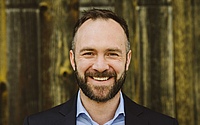Generative AI for Science: Boosting Efficiency, Effectiveness and Creativity
|
Contents
Enhance your scientific endeavors by harnessing the power of Artificial Intelligence! Discover generative AI and use it as your assistant, enabler, and catalyst. Foster new ideas, develop skills and amplify output. This highly interactive workshop combines trainer-led inputs with hands-on exercises, in which you are exploring AI tools and resources.
Kickstart your journey with the fundamentals of generative AI such as large language models (LLMs) to create text and diffusion models for image production. You will explore tools like ChatGPT, Perplexity.ai and Midjourney unlocking their potential in countless scientific applications. For example, you will learn how to use these for brainstorming to generate new ideas and develop projects as well as for literature research from data mining to summarizing text.
LLMs are extremely powerful in generating software, as code is just another highly structured language. We will train how to enhance our programming skills using generative AI as a programming partner, or even starting from scratch if you are new to coding. (**)
The workshop closes with a discussion about the ethical implications of AI alongside the principles of Good Scientific Practice.
The specific learning goals and topics of the workshop are:
- Understand what generative AI is and how it works. Learn effective prompting to obtain your desired results.
- Use AI assistants as a coach, e.g., for career development and decision making.
- Exploit AI for brainstorming and ideation: Formulate research questions and draft proposals.
- Enhance your publication process, including proof-reading and editing.
- Coding with AI: Start to learn from scratch or advance programming skills and master complex coding problems
- Reflection on strength, weaknesses, threats, and opportunities of AI in science and academia including a discussion about Good Scientific Practice and AI
Lecturers

Dr. Alexander Britz is a trainer for communication and behavior with a an interdisciplinary background in chemistry, physics, and materials science. Currently, he works as a trainer and coach for young scientists, offering workshops on communication, leadership, and innovation, with a focus on improving research efficiency and fostering sustainability, diversity, and community within academia
